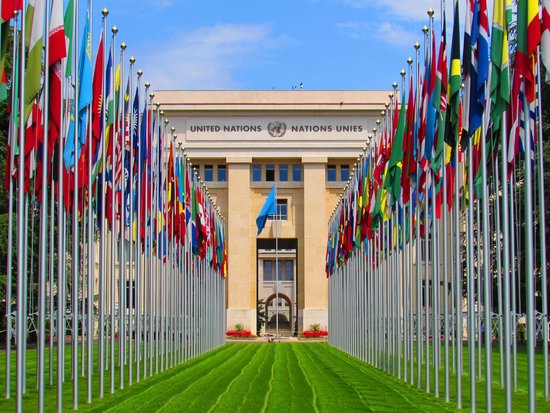Office of the United Nations High Commissioner for Human Rights has filed an intervention in the Supreme Court on the Citizenship Amendment Act (CAA) and informed India’s Permanent Mission in Geneva about it, the Ministry of External Affairs said Tuesday, 3 March. The MEA asserted that the CAA is an internal matter of India and raised concerns about the sovereign right of the Indian Parliament to make laws.
This rare intervention by the topmost world body on human rights drew a strong response from the Ministry of External Affairs which argued that the the law was an internal matter of India. The controversial citizenship bill enacted on December 11, 2019, promises amnesty for undocumented migrants belonging to the non-Muslim faiths from Bangladesh, Afghanistan and Pakistan. Critics say that the law is discriminatory in essence.
“Our Permanent Mission in Geneva was informed yesterday evening by UN High Commissioner for Human Rights, Michelle Bachelet, that her office had filed an intervention application in the Supreme Court of India in respect to the 2019 Citizenship Amendment Act,” MEA Spokesperson Raveesh Kumar said. “We strongly believe that no foreign party has any locus standi on issues pertaining to India’s sovereignty,” he said.
“India is clear that the CAA is constitutionally valid and complies with all requirements of its constitutional values,” Kumar said.“It is reflective of our long standing national commitment in respect of human rights issues arising from the tragedy of the Partition of India,” he said.
“India is a democratic country governed by the rule of law. We all have utmost respect for and full trust in our independent judiciary. We are confident that our sound and legally sustainable position will be vindicated by the Supreme Court,” he said.
States Must Comply With Humanitarian Laws: UN HRC
According to the application, it seeks to provide the Supreme Court with an overview of international human rights norms and standards. It also provides a reminder to India on its stance on the “equal protection of the law” in 1949.
“It is remarkable that sixty years later, this very issue lies at the heart of this Honourable Court’s deliberations as it examines the Citizenship Amendment Act. This presents the Honourable Court with a historic and unique opportunity to give practical meaning to this fundamental right at the domestic level.”
The application recognises that while the issue of non-discrimination on nationality grounds falls outside the scope of the intervention, “it in no way implies that there are not human rights concerns in this respect.”


